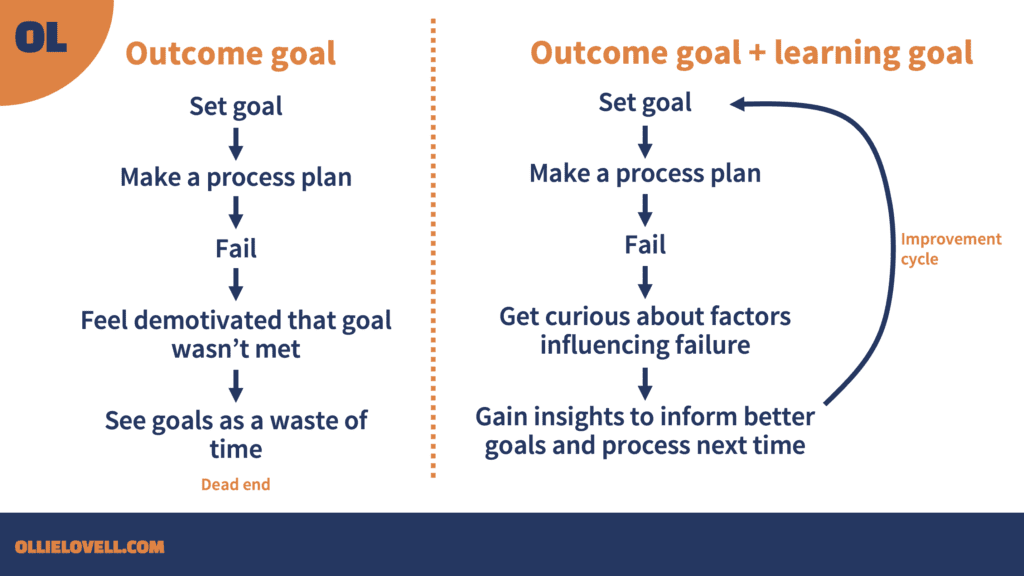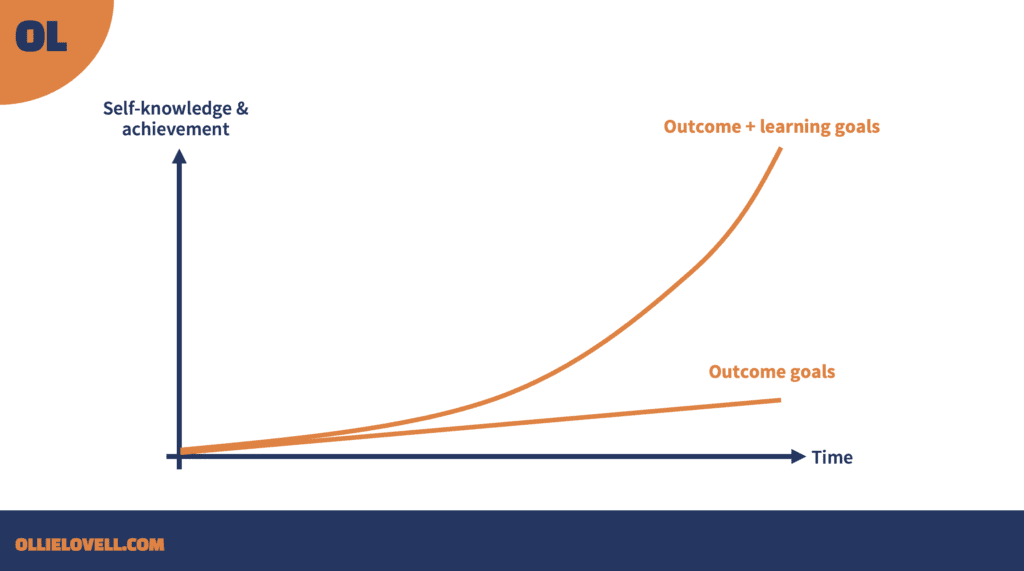New Year's resolutions can be a recipe for demotivation and failure, or an opportunity for enhanced self-knowledge and compounding achievement. Here's what I've learnt about pursuing the latter…
The root of the problem lies with our beliefs about the purpose of New Year's resolutions. Many people see the point of them as singular and obvious… to achieve our goal.
Maybe it's quitting smoking, exercising more, eating healthier, reading more books, or being a better partner, parent, or friend. Whatever the virtuous pursuit you choose, there's no doubt that achieving your goal is a key aim.
But there's also a secondary goal that's often under-appreciated. And here's a secret, it's just as important as the first. The second goal of New Year's resolutions is to learn.
What can we learn about through NY resolutions? We can learn about ourselves, what makes us tick, what's motivating and demotivating for us, and what we need to do, modify, or enact to bridge the gap between aspirations and achievement.
When we have a singular outcome goal, failing to achieve it leads to demotivation. That's because there was only one goal, and we've failed it.
However, when we have both an outcome and a learning goal, each outcome failure is also an opportunity for learning success. As a result, failure can be met with curiosity, which can in turn yield further insights to inform the next goal.
The end result? Outcome goals alone lead to dead ends. In contrast, an outcome + a learning goal leads to a perpetual improvement cycle.

What does this have to do with New Year's resolutions? It's simple. Each year provides an opportunity to apply curiosity to our goals from the previous year, ‘What have we learnt about ourselves that we can use to inform our new goal-setting process?'
For example, a couple of years ago my insight was that I needed to turn outcome goals (longer-term objectives, e.g., get fit) into process goals (daily tasks, e.g., put on my running clothing each day) to increase my chances of completion.
Building on this, my insight from 2022 is that process goals that have a scheduled time (e.g., those linked to my morning routine) are more consistently achieved than those that can occur any time throughout the day. This means that for 2023 I need to create multiple routine blocks, not just my morning routine, to act as distinct habit buckets throughout the day.
Importantly, the impact of outcome goals only vs. outcome + learning goals over a lifetime are huge. It's the difference between small gains made through sheer effort, and compounding improvements in both self-knowledge and achievement, over the decades.

Making better New Year's resolutions is about curiously applying the prior year's learnings about goal setting, your life context, and yourself, to set up better structures and frameworks to bring you closer to meeting your outcome goals in the new year.
Good luck for good insights.
ps: As Harry Fletcher-Wood says, ‘Motivation is fickle… We can rely on habits'. This podcast on Habits of Success is another great aid to successfully planning the year ahead. Enjoy : )
You are reading an instalment 130 of Teacher Ollie's Takeaways, an (aspirationally) weekly email in which I share some personal thoughts on teaching and learning, as well as great resources from others. Subscribe here, view all back issues here.
Announcements and Opportunities
- Australia's premier Instructional Coaching event for 2023 will be held on March 6th. The Steplab Instructional Coaching Intensive with Peps Mccrea, Josh Goodrich (they're both coming over from the UK!), Dr. Mark Dowley and myself will be a day of in-depth advice, insights, and practice on effectively improving teaching and learning in your school. To find out more, and to book, see the event page.
Articles and Resources (TOT130)
Quote:
‘The wisdom of life consists in the elimination of non-essentials'
—Lin Yutang
The post Making better New Year’s resolutions appeared first on Ollie Lovell.